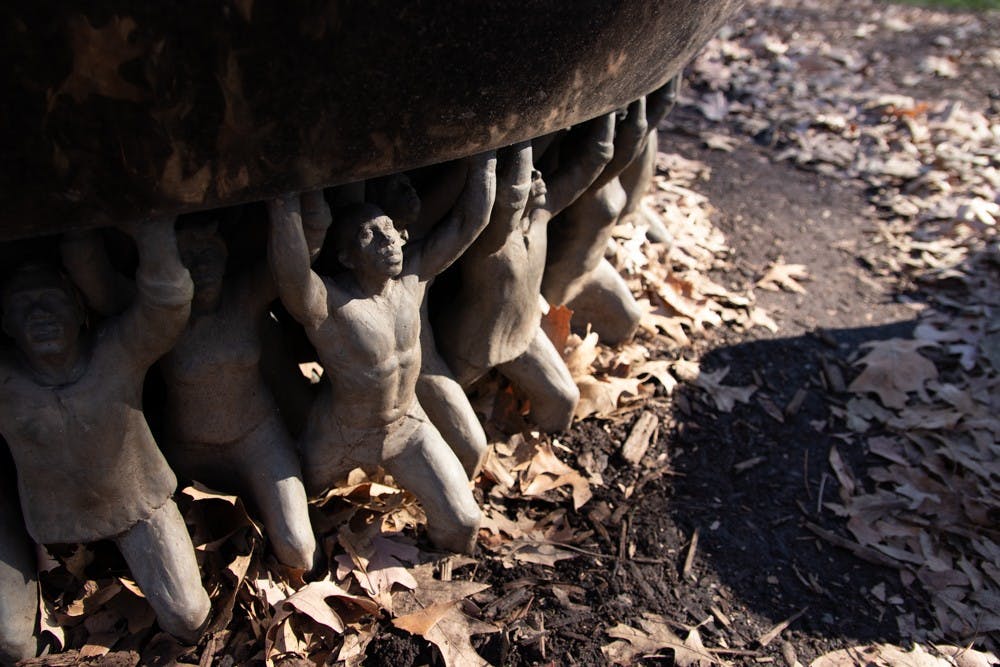The University Commission on History, Race and a Way Forward discussed the sinking of the Unsung Founders Memorial at its second meeting on Tuesday.
Discussion at the meeting largely revolved around issues of accessibility and representation with the memorial, as well as ways to prevent it from further sinking into the ground.
Proposed plans
Associate Vice Chancellor for Facilities Services Anna Wu and Executive Director of Facilities Planning and Design Evan Yassky presented preliminary design options as a part of a larger project previously undertaken by the History Task Force to curate McCorkle Place.
The Unsung Founders Memorial has been sinking into the ground due to increased water runoff and tree cover growth since the monument’s installment in 2005, Yassky said.
Yassky proposed shifting the memorial’s location slightly closer to McCorkle Place’s pathways to improve accessibility for those with mobility impairments who might not be able to reach its current placement, and raising the memorial’s grating slightly to elevate its prominence.
He said the task force also considered ways of highlighting the relationship between the memorial and surrounding buildings that were built by enslaved individuals.
Yassky said the task force worked with Durham-based landscape architecture firm Surface 678 in the creation of two concepts. One potential design option proposed adding a circle of gravel or stone material around the current memorial, enclosed by sections of seating that would be potentially engraved with the names of enslaved people who built the University.
Wu said the total costs for the proposed plans were under $300,000, which includes expenditures for relocating and regrading the structure, foundation work under the seat and text walls and an added contingency for additional unforeseen fees.




